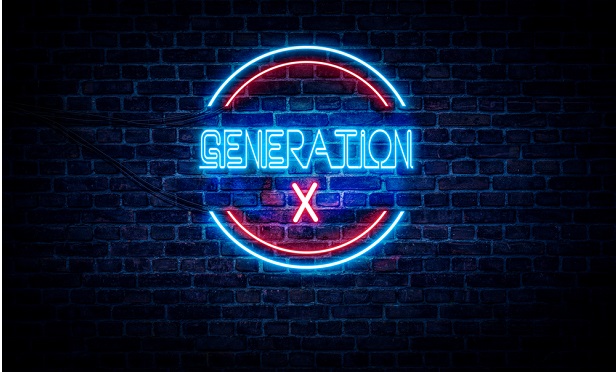 In recent years, employers have been focused on preparing for the impact of the boomer generation leaving the workforce, while also trying to attract and retain the millennial generation. (Photo: Shutterstock)
In recent years, employers have been focused on preparing for the impact of the boomer generation leaving the workforce, while also trying to attract and retain the millennial generation. (Photo: Shutterstock)
A new national survey by MetLife finds that Gen X—workers between the ages 38 and 53—are a kind of forgotten generation, a demographic of workers who are less happy in their jobs and more financially stressed.
In recent years, employers have been focused on preparing for the impact of the boomer generation leaving the workforce, while also trying to attract and retain the millennial generation. MetLife's Employee Benefit Trends Study said it seems employers have overlooked Gen X—a group that accounts for one third of the nation's workforce, or 53 million people.
Financial insecurity is higher among Gen X
The survey found that Gen X workers are more likely to feel underappreciated at work and say they engage with their work at lower rates than millennials. In addition, Gen X respondents are less financially secure, according to the report.
Related: Gen Xers are Gen AnXious about retirement savings
All generations listed personal finances as their top source of stress, the survey found. But Gen X workers were more stressed—just 59 percent of that generation of workers are confident in their finances, compared to 67 percent of millennials and 65 percent of boomers. Gen X workers also have less in savings than boomers and millennials, and nearly half (48 percent) said they live paycheck to paycheck.
This lack of financial security carries over to engagement in the workplace, the study said. When asked if they were happy at work, lower numbers of Gen X workers (68 percent) said they were, compared with 75 percent of millennials and 74 percent of boomers. In addition, only 54 percent of Gen X workers felt empowered at work and 62 percent said they felt respected in the workplace.
“The combination of Gen X's financial stress with low engagement and the perceived lack of appreciation can have significant negative repercussions across the workplace, and employers need to take this seriously,” said Todd Katz, executive vice president, Group Benefits at MetLife. “With record low unemployment and employers competing in a war for talent, those who can understand their workforce's pain points will be best positioned to both attract and retain experienced, highly skilled workers.”
Increasing engagement with better benefits
With Gen X making up such a large part of the workforce, the study recommends that employers pay more attention to benefits that appeal to this generation. Financial wellness tools, for example, might be of particular value to these workers—although the study noted all groups of workers can benefit from these products.
Gen X workers are also hungry for opportunities in advancement and training. The survey found a gap between the kinds of training that Gen X values and what employers offer. “Roughly two in three Gen X workers say their employers do not provide people management and development skills training (68 percent) or learning opportunities to adapt to technology innovations (65 percent), yet only 29 percent of employers consider upskilling current workers a challenge for them. This indicates employers may not fully understand the desire from employees for more educational opportunities,” the report said.
Read more:
- Market crash of 2008 still affects Gen Xers, boomers
- What benefits matter most to Gen Xers?
- How you can improve your leadership development program–according to millennials
© 2025 ALM Global, LLC, All Rights Reserved. Request academic re-use from www.copyright.com. All other uses, submit a request to [email protected]. For more information visit Asset & Logo Licensing.







